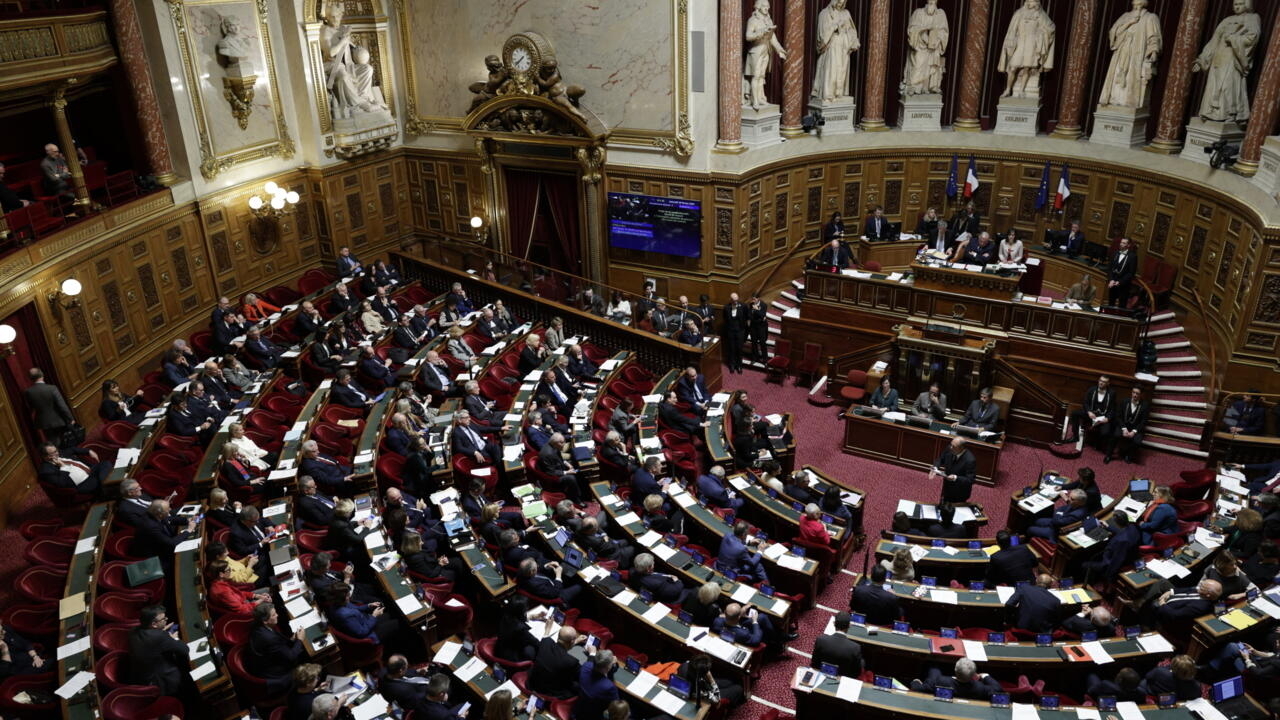

French lawmakers are expected Monday to anchor the right to abortion in the country’s constitution, in a global first that has garnered overwhelming public support.
Issued on:
3 min
Advertising
A congress of both houses of parliament in Versailles starting at 3:30 pm (1430 GMT) should find the three-fifths majority needed for the change after it overcame initial resistance in the right-leaning Senate.
If congress approves the move, France will become the only country in the world to clearly protect the right to terminate a pregnancy in its basic law.
President Emmanuel Macron pledged last year to enshrine abortion — legal in France since 1975 — in the constitution after the US Supreme Court in 2022 overturned the half-century-old right to the procedure, allowing states to ban or curtail it.
France’s lower-house National Assembly in January overwhelmingly approved making abortion a “guaranteed freedom” in the constitution, followed by the Senate on Wednesday.
The bill is now expected to clear the final hurdle of a combined vote of both chambers when they gather for a rare joint session at the former royal residence of the Palace of Versailles.
Few expect any difficulty finding the needed supermajority after the three-fifths mark was largely exceeded in both previous ballots.
When political campaigning began in earnest in 1971, “we could never have imagined that the right to abortion would one day be written into the constitution,” Claudine Monteil, head of the Femmes Monde (Women in the World) association, told AFP.
Monteil was the youngest signatory to “Manifesto of the 343”, a 1971 French petition signed by 343 women who admitted to having illegally ended a pregnancy, along with up to 800,000 of their compatriots each year.
‘Woke us up’
Abortion was legalised in France in 1975 in a law championed by health minister Simone Veil, a women’s rights icon granted the rare honour of burial at the Pantheon after her death in 2018.
But another leading feminist, Simone de Beauvoir, had told Monteil the year before that “all it will take is a political, economic or religious crisis for women’s rights to be called into question”, she recalled.
In that sense, “the behaviour of the US Supreme Court did women all around the world a favour, because it woke us up”, Monteil said.
Leah Hoctor, of the Center for Reproductive Rights, said France could offer “the first explicit broad constitutional provision of its kind, not just in Europe, but also globally”.
Chile included the right to elective abortion in a draft for a new progressive constitution in 2022, but voters rejected the text in a referendum.
Some countries allude to the right.
Cuba’s constitution guarantees women’s “reproductive and sexual rights”.
And several Balkan states have inherited versions of former Yugoslavia’s 1974 constitution that said it was a human right to “decide on the birth of children”.
Other states explicitly mention abortion in their constitution, but only allow it in specific circumstances, Hoctor said.
In Kenya, for example, the constitution says “abortion is not permitted unless, in the opinion of a trained health professional, there is need for emergency treatment, or the life or health of the mother is in danger, or if permitted by any other written law”.
Under pressure
Most members of the French public support the move to give the right extra protection.
A November 2022 survey by French polling group IFOP found that 86 percent of French people supported inscribing it in the constitution.
Left-wing and centrist politicians have welcomed the change, while right-wing senators in private have said they felt under pressure to give it a green light.
One said her daughters would “no longer come for Christmas” if she opposed the move.
Macron on Wednesday celebrated what he called the Senate’s “decisive step” and immediately called for the parliamentary congress on Monday.
The last time one was called to change the constitution was in 2008, when lawmakers only just approved wide-sweeping reforms under former president Nicolas Sarkozy.
Those changes included limiting a president’s time in office to two terms, as well as better safeguards for press independence and freedom.
(AFP)
EMEA Tribune is not involved in this news article, it is taken from our partners and or from the News Agencies. Copyright and Credit go to the News Agencies, email [email protected] Follow our WhatsApp verified Channel









